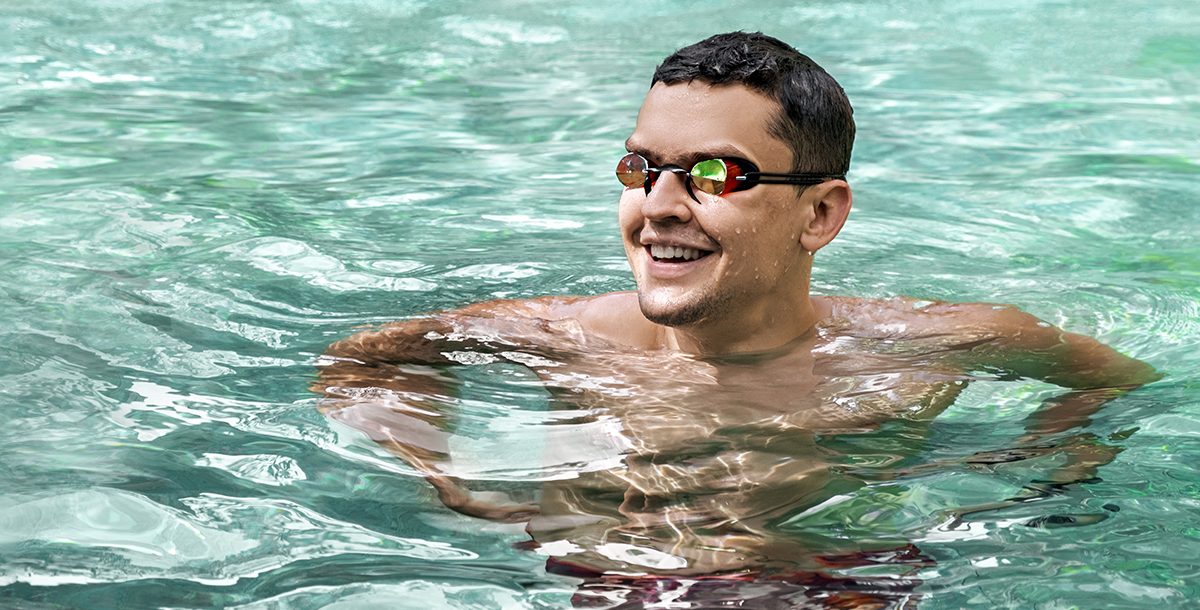During the summer months, the sun, chlorine and other contaminants can cause short-term irritation and, in some cases, long-term damage to your eyes.
So how can you protect your eyes during the summer? Read on to find out.
Sunglasses: not just for fashion
Damage from UV rays has a cumulative effect, building up over years of exposure. This can lead to loss of eyesight to varying degrees depending on the type and amount of damage.
It is important to know UV rays can penetrate your eyelids. Simply closing your eyes isn’t complete protection and isn’t a reasonable way to protect yourself. Therefore, sunglasses serve a purpose to protect your eyes from the sun.
Not all sunglasses are created equal, though. Using sunglasses with lenses that offer UV protection is the best option. Not all lenses offer this, so you’ll need to check the tags or the stickers on the pair before you purchase them. Look for a label clearly marked 100% UVA/UVB protection. Add a hat for even more protection.
What are polarized sunglasses?
Polarized sunglasses help to reduce glare and are meant to improve vision by filtering light. This lens is good for preventing eyestrain from glare and improving visibility when it is bright outside.
However, the drawback is that this type of lens doesn’t always offer UV protection. In some people, this type of lens can even affect the way they see. Be sure to try them out to make sure your vision isn’t negatively impacted before purchasing.
Put your goggles on before diving in
Swimming is a favorite summer pastime but can be hard on the eyes. It is safe to swim without goggles, although your eyes could become irritated. Goggles can help to avoid these irritants as well as help you see more clearly when swimming underwater. Goggles also come with UV protection like sunglasses, so choose a pair with this protection.
Check out these additional swimming tips based on the water you are swimming in.
- When swimming in chlorinated pools, the chemicals can cause redness and irritation. Check the chemical levels before swimming to make sure they are balanced. You may still experience some irritation even if the chemicals are at the proper levels. However, if the levels are high, it can cause burning around the eyes.
- Ocean water can burn the eyes, but the saltwater isn’t dangerous. If you feel grit in your eyes, don’t rub them. Rubbing could cause the sand or grit to scratch your cornea. Instead rinse your eyes well with fresh, clean water to remove the foreign debris.
- When swimming in lakes or other fresh water, there is a chance of infection from bacteria. Goggles can help to prevent this but also rinse your eyes when you come out of the water.
Learn more about the ophthalmology and eye health services we offer at Mercy Health.






